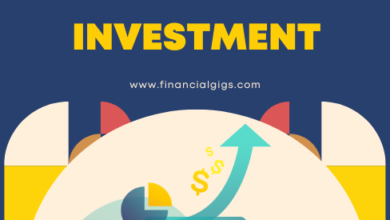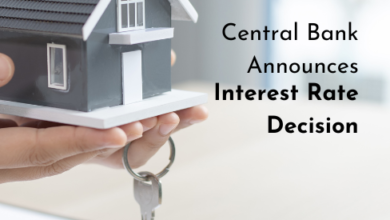
Navigating the Solar Installer industry to find the right installer for B2B financing involves understanding your unique solar energy needs and the landscape of solar solutions available. With platforms like EnergySage providing comprehensive guides on how to choose a solar installer, businesses can access vital information on financial stability, regulatory compliance, and initiating their solar journey 1. This initial step is pivotal in steering towards a sustainable future with renewable energy, highlighting the significance of transparency, after-sales service, and the environmental impact of solar installations.
As B2B companies explore financial options for solar projects, the emphasis on product quality, energy monitoring, and sustainable practices becomes paramount. EnergySage serves as a resourceful platform, dissecting crucial aspects such as identifying reputable solar installers, delineating installer solar best practices, and leveraging solar calculators for informed decision-making 1. This article aims to demystify the process of selecting a solar installer for B2B financing, ensuring quality and compliance while fostering environmental sustainability and a solar energy system that aligns with your business’s needs.
Understanding Your Business’s Solar Needs
Understanding the specific solar energy needs of a business is crucial for the successful implementation of a solar panel system. Here are key steps and considerations:
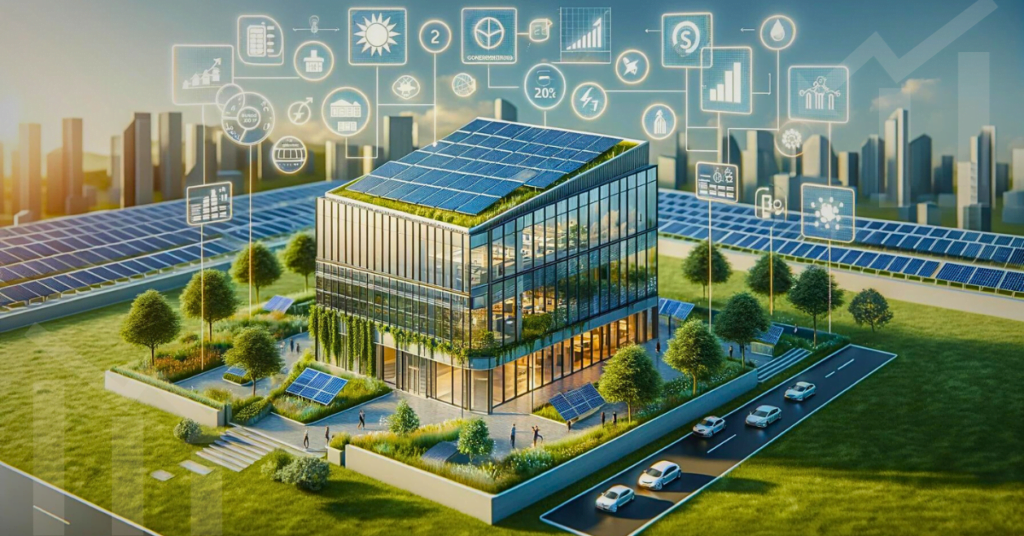
- Assess Energy Consumption:
- Determine System Size and Panel Requirements:
- Evaluate Benefits and Conduct Risk Assessment:
These steps, grounded in thorough analysis and planning, pave the way for selecting a solar installer that can meet the business’s energy needs effectively and sustainably.
Evaluating Potential Solar Installers
When starting the process of evaluating potential solar installers for your B2B financing needs, consider the following key factors to ensure you select a reputable and reliable partner:
- Credentials and Experience:
- Verify that the installer has the necessary licenses and certifications, such as NABCEP or IREC 29.
- Choose an installer with a solid track record in commercial solar installations and extensive industry knowledge 2.
- Prefer installers with at least three years of experience and a portfolio of successful commercial installations 9.
- Financial and Quality Considerations:
- Assess the financing options offered by the installer, including leases, PPAs, and any available incentives or discounts 2.
- Inquire about warranty coverage for equipment and installation, and ensure they offer clear communication about response times for support and repairs 2.
- Calculate the ROI by evaluating the upfront costs against potential savings and the quality of the solar panel system 2.
- Local vs. National Installers:
- Local installers may provide more personalized service and have better knowledge of local regulations and incentives 1320.
- Consider the benefits of self-performing installers who have direct oversight of the installation process 13.
- Research the company’s reputation, customer satisfaction, and environmental commitment 21320.
By carefully considering these factors, businesses can make an informed decision and choose a solar installer that best meets their financial and energy requirements.
Exploring Financing Options for Solar Installation
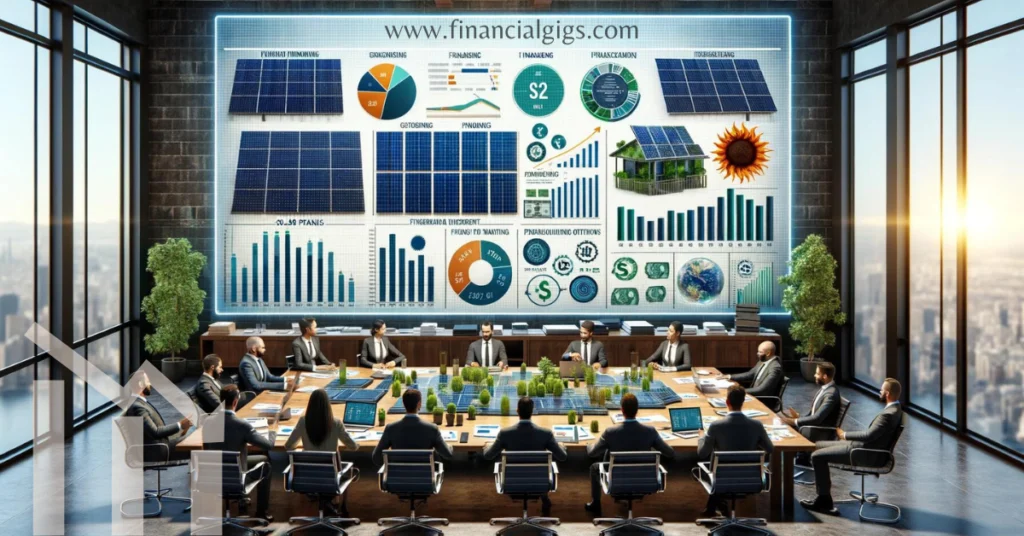
Exploring the various financing options for a solar installation is a critical step for businesses looking to harness solar energy. Here’s a breakdown of the primary methods available:
- Cash Purchases: The most straightforward option, where the business pays upfront for the solar system. This method often results in the lowest overall cost and quickest implementation. Businesses own the system outright, enjoying all financial and tax benefits 23.
- Solar Loans: Similar to other types of loans, solar loans allow businesses to borrow the necessary funds for installation, spreading the cost over time. This option retains the benefits of ownership, such as tax credits, while enabling businesses to manage cash flow more effectively 23.
- Leases and Power Purchase Agreements (PPAs): Both options involve a third party owning the solar system. In a lease, the business pays a monthly fee to use the panels. PPAs differ slightly, with the business paying for the electricity generated, often at a lower rate than the grid. These options can be attractive for businesses looking to reduce upfront costs and avoid maintenance responsibilities 23.
It’s essential to weigh each option carefully, considering your business’s financial situation, long-term energy goals, and the potential for government incentives or tax breaks 213. Consulting with a knowledgeable solar installer can provide clarity, ensuring the chosen financing method aligns with your business’s needs and objectives 22.
Ensuring Quality and Compliance
Ensuring the quality and compliance of your solar installation is paramount for achieving long-term sustainability and financial stability. Here are key considerations to guide you:
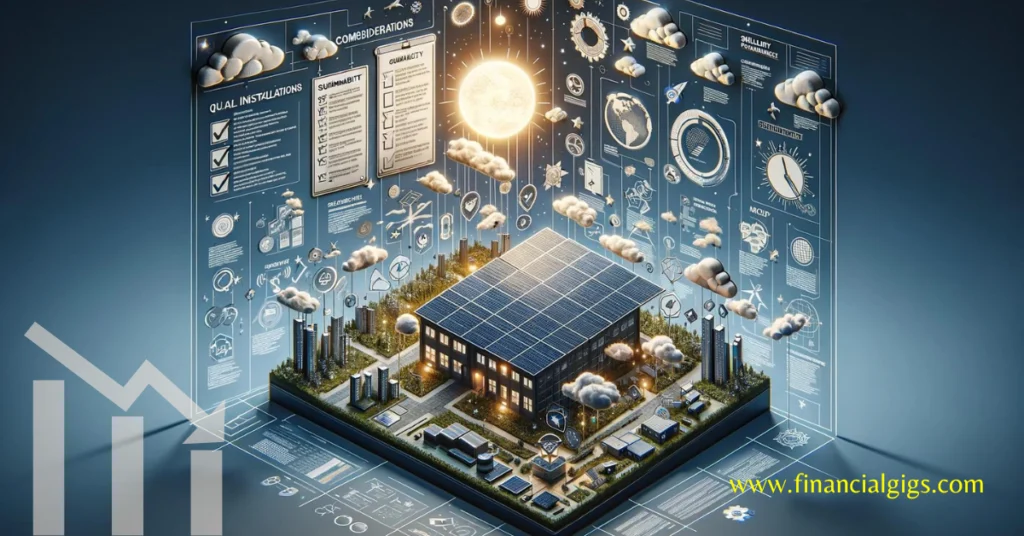
- Warranty and Bankability:
- Quality and Performance:
- Cost and Compliance:
These steps ensure that your solar installation not only meets but exceeds expectations in terms of quality, compliance, and impact, paving the way for a more sustainable and financially stable future.
Conclusion
In navigating the complexities of choosing the right solar installer for B2B financing, our journey has spanned from understanding the intricate solar energy needs of businesses to evaluating potential installers and exploring financing options. The critical examination of these elements ensures that businesses can make informed decisions aligning with their financial and sustainability goals. This article has underscored the importance of quality, compliance, and the positive environmental impact of adopting solar energy, reinforcing the notion that thoughtful selection of a solar installer is pivotal for a successful solar installation.
The implications of this selection process extend beyond immediate financial or operational benefits; they encapsulate a commitment to environmental stewardship and a step towards a more sustainable future. By drawing on the comprehensive guide provided, businesses are better equipped to embark on their solar journey with confidence. The path to integrating solar energy into your business operations is a significant one, filled with potential for growth, savings, and a lasting contribution to the planet’s health. The journey forward, guided by informed choices and strategic considerations, holds the promise of a brighter, more sustainable future for businesses ready to embrace the power of the sun.
FAQs
What should I consider when selecting a solar panel installer? When choosing a solar panel installer, it’s important to do your homework. Start by exploring the various installers available to you. Check their credentials and previous work to ensure they’re reputable. Read customer reviews and request references to gauge their reliability and quality of service. Also, confirm that they have comprehensive policies in place to protect your interests.
What are the steps to start a solar panel business in the UK? To launch a solar panel business in the UK, begin by drafting a detailed business plan. Obtain MCS accreditation to ensure compliance with industry standards. Assess the skills required and consider any additional training you may need. Research the market to identify your unique selling proposition (USP). Choose a memorable name for your company, register your business, and secure all necessary licenses and permits.
What qualifications are necessary to install solar panels in the UK? To work as a solar panel installer in the UK, you must be a qualified electrician or roofer. Electricians are advised to obtain MCS certification to demonstrate their competence in solar panel installation. Training courses for PV installation can cost between £600 and £750 and usually last between 3 to 5 days. The average salary for a solar installer in the UK is approximately £37,912.
Is the solar panel business a profitable venture? Yes, the solar panel industry is considered a profitable business, with average profit margins ranging between 20%-25%. Solar power plants benefit from low operating costs and high-profit margins. Additionally, as solar energy becomes more popular and cost-effective, the business opportunity in this sector is increasingly attractive.

